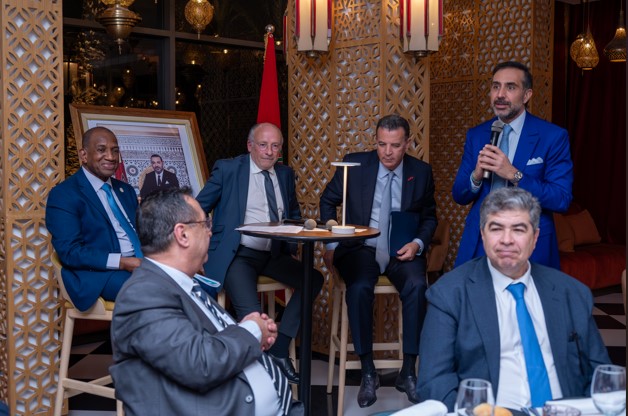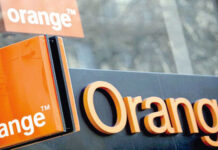On February 4, the eve of the Halieutis Expo, the Moroccan Institute of Strategic Intelligence (IMIS) presented its latest policy paper titled “The Africa-Atlantic Blue Economy in Dakhla: A Southern Success Story Facing New Challenges.” Led by Kabiné Komara, former Prime Minister of Guinea and an expert in industrial development, the report is the culmination of four months of research involving a diverse team of specialists. It highlights the impressive transformation of Morocco’s fisheries sector, particularly in the Dakhla-Oued Eddahab region, and explores future opportunities through the Africa-Atlantic Initiative spearheaded by King Mohammed VI.
The dinner-debate, held under the theme “Europe-Africa Atlantic: What Future Partnership in a Multipolar World?” brought together key figures, including Chakib Alj, president of the General Confederation of Moroccan Enterprises (CGEM), alongside other prominent national and international stakeholders. The event served as a platform for deep discussions on regional cooperation amid shifting economic and environmental dynamics.
The report emphasizes that under King Mohammed VI’s leadership, Morocco has pursued an economic sovereignty strategy that has fueled the autonomous growth of the fisheries sector. By replacing foreign operators with national investors, Morocco has developed a fully integrated ecosystem spanning marine resource extraction, processing, and marketing. The sector now generates over 3 billion dirhams annually, operates a fleet of 32 industrial ships, and sustains 40 processing units that directly employ 14,000 people. This growth has solidified Morocco’s position as a major player on the global fisheries market.
Despite its success, the sector faces significant challenges, with ecological sustainability at the forefront. Marine resources are under increasing pressure due to overfishing and illegal fishing activities, which threaten the delicate balance of marine ecosystems. Additionally, the sector must contend with emerging trade barriers, particularly new tariffs imposed by the European Court of Justice on goods originating from Morocco’s Sahara region.
To address these challenges, the IMIS report proposes a series of strategic recommendations aimed at ensuring the sustainable and coordinated management of fisheries resources. Chief among these proposals is the establishment of an “African Blue Belt”—a regional cooperation initiative designed to promote sustainable and inclusive development among Atlantic coastal nations. Key priorities include strengthening local capacity, investing in environmentally friendly fishing technologies, and fostering shared governance frameworks to protect marine ecosystems.
The discussions also underscored the importance of a stronger partnership between Africa, Morocco, and Europe. The Africa-Atlantic Initiative seeks to deepen economic ties while integrating environmental considerations. Kabiné Komara highlighted Morocco’s fisheries model as a source of inspiration for other African countries, emphasizing that maintaining this success will require ongoing reform, innovation, and regional collaboration to keep pace with contemporary global challenges.





